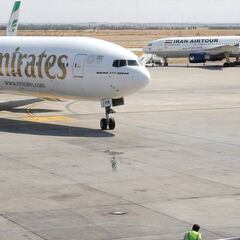Philippines brings back lockdown to capital amidst Covid-19 surge
Philippines President Rodrigo Duterte has decided to re-impose lockdown in the capital for two weeks as a result of an alarming surge in new Covid-19 cases.

Philippines presidential spokesperson Harry Roque declared on Monday that the metropolitan capital Manila that's populated by 12 million people will be placed under strict lockdown for two weeks starting Tuesday 4 August, after the medical authorities in the country warned there has been an alarming surge in Covid-19 cases recently that might be very costly in the country's battle against the coronavirus.
As per the new order, which is opposed by finance and economic officials, only authorized individuals like medical personnel and people providing essential services will be allowed to go out of their homes as police checkpoints will be on the streets ensuring the execution of newly-issued restrictions.
All establishments and stores that were previously allowed to run their business in the country's bid to revive its stagnant economy will be closed again. That includes dine-in restaurants, gyms, cafes, barbershops, massage and tattoo shops, cinemas and tourist attractions.
Related stories
Authorized organizations and companies providing essential services like banks, health, and food companies but must shuttle their workers between home and work. Employees can also commute by bike or private vehicles as public transport will be suspended.
A record-high increase in cases
The department of health reported an unprecedented spike in Covid-19 cases on Sunday as more than 5,032 fresh cases were registered, taking the caseload up to 103,185, with more than 2,000 deaths, which forced the government to take some radical measures in an attempt to curb the further spread of the infection.

